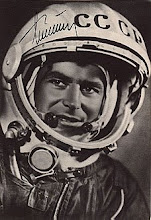Just wanted to share some final thoughts on my term paper and the course in general. As you all know, if you've been reading my blog, I was one of the few class members that chose to analyse a book-length ethnography instead of conducting my own online research. Although I still think that was the right idea because it really did shed a lot of light on the ethnographic process, it is too bad I didn't get a chance to conduct research of my own.
Originally, my intentions were to conduct my research within the Facebook community because I was really intrigued by the size and scope of the network. Perhaps the largest virtual community in the world, it might of been interesting to study how and why it grew so fast, how social interactions differ or relate to those in the physical world, and also– much like Christensen did with Inuit in Cyberspace– to try and understand how individuals negotiate their self-identity in this particular media rich environment.
Another intriguing area to look at, within the Facebook framework, may have been to consider Ferdinand Tonnies ideas about communal living. In writing about Inuit in Cyberspace, I briefly spoke about Gemeinschaft and Gesellschaft and how the social theories applied to the context of the ethnography I was analysing. As I laid out the implications of these theories, relative to Inuit in Cyberspace, I couldn't help but think about how these concepts apply to the Facebook community.
If I had to begin my research today, I would explore whether the Facebook community was one which displayed aspects of Gemeinschaft or Gesellschaft. It would be interesting to speak to various members and see how they valued the relationships fostered online, do these relationships nurture feelings of inclusion and loyalty seen in Gemeinschaft or is Gesellschaft inevitable because of the sheer size of the network. Also, does the number of friends
in an individuals 'Friend List' affect the way one is involved within the social landscape? Perhaps, as Friends Lists grow Gesellschaft replaces the sense of Gemeinschaft felt by the user. If so, is their a magic number, a sort of symbolic threshold that, when crossed, begins to disconnect the individual from the community. This sort of disconnect occurs in the physical world as villages and towns transform into cities, it would be interesting to see if the Facebook community is a sort of microcosm of this type of transition.
Having said that, I don't think I would of been capable of bringing up these questions–or go about systematically researching them through ethnography for that matter– had I not put Inuit in Cyberspace under the microscope. For that exact reason, I am glad I chose to analyse the book.
To all, good luck in the future!
Spil Vass
Wednesday, April 22, 2009
Subscribe to:
Post Comments (Atom)

No comments:
Post a Comment